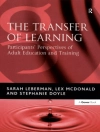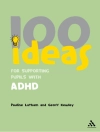‘The wealth of this information is like finding a chest of jewels you always knew was under the ocean but now here it is-a wonderful discovery that validates everything I knew was right about teaching to the needs of the individual learner.’
–
Leslie Morris, Reading First Coach
Enhance your repertoire of literacy instructional strategies!
Reading proficiency is the most fundamental learning skill, critical to students′ success. Renowned educators and authors Cathy Collins Block and Susan Israel present an indispensable guide that will give teachers and literacy coaches crystal clear understanding of the evidenced-based instructional practices required by Reading First Legislation, along with the tools to incorporate them. The authors further expand the support for enriched classroom practice through evidence and practical how-to advice for additional domains that show proven benefits for students, including writing, metacognition and oral language.
Through their explanations, teaching directions, and sample lessons, this resource bridges the gap between key research and daily reading classroom teaching. It also summarizes the educator-relevant provisions and requirements of Reading First and the No Child Left Behind federal programs.
Each chapter includes:
- Short classroom-relevant research summaries for teachers
- What teachers need to know about phonics, phonemic awareness, vocabulary, comprehension, and fluency
- Lesson plans addressing each literacy domain
- Components to assess learning
- Strategies to differentiate for special learners, ELL, and advanced readers
Reading First and Beyond is packed with enriching ideas for all educators that will enhance their list of literacy instructional strategies, helping them achieve high levels of reading proficiency from all students.
表中的内容
Preface
Acknowledgments
About the Authors
1. Introduction to No Child Left Behind (NCLB) and Reading First (RF)
2. Research-Based Practices for Oral Language Development
3. Prekindergarten and Kindergarten Literacy: Phonemes and Phonemic Awareness
4. Phonics: The Building Blocks of Literacy
5. Vocabulary Development: Powerful Instruction for Reading Success
6. Achieve and Measure Reading Fluency: Expanding the Opportunity
7. Comprehension Instruction: Scientifically Validated Effective Methods
8. Independent Reading and Shared Reading of Trade Books
9. Making Students′ Writing Come Alive: Strategies for Teaching Writing
10. Metacognition: Monitoring Strategies to Enhance Reading Comprehension
11. Including Parents as True Partners
References and Suggested Readings
Index
关于作者
Susan E. Israel is an independent researcher, writer, and literacy consultant and currently serves as President and Director of Reading Alliance for Catholic Education in Indiana, where she works with small and large corporations to enhance literacy products. Her special research interests are in the areas of reading comprehension, writing, and child-mind development as it relates to literacy processes. Israel served as assistant professor at the University of Dayton, and in 2005 she was awarded the University’s Panhellenic Council Outstanding Professor Award. She has also served on the national faculty at the University of Notre Dame Summer Program, where she taught reading and language arts methods. A former elementary teacher, she was awarded the 1998 teacher-researcher grant from the International Reading Association (IRA). Having been an active member of the IRA for over a decade, she has served on a number of IRA committees and interest groups and recently was president of the History of Literacy Special Interest Group. In addition, she has been active with the National Reading Conference. Israel has authored, coauthored, or edited over 15 books and volumes and is the senior editor of the recently published comprehensive volume, Handbook of Research on Reading Comprehension (Israel & Duffy, 2008). Other recent publications include Teachers Taking Action: A Comprehensive Guide to Teacher Research (with Cynthia Lassonde, 2008), Reading First and Beyond (with Cathy Collins Block, 2005), Collaborative Literacy (2006), Shaping the Reading Field (2007), Poetic Possibilities (2006), and Quotes to Inspire Great Reading Teachers (2006).












